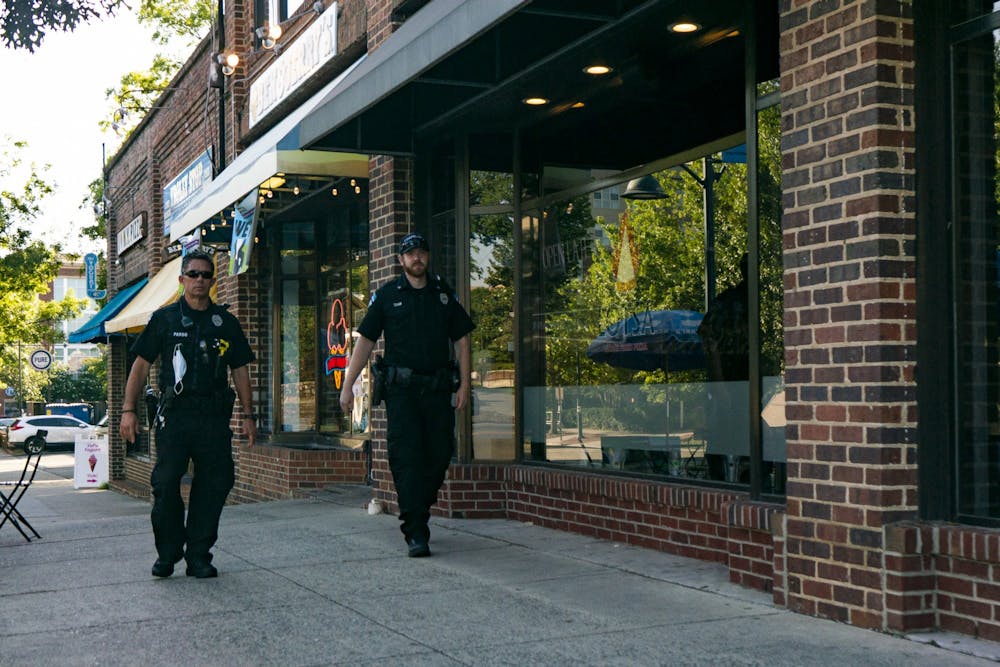Amid national outcries to defund police departments, Chapel Hill residents voiced over two hours worth of concerns about the Chapel Hill Police Department’s portion of the proposed town budget at the June 10 Town Council meeting.
N.C. Sen. Valerie Foushee, D-Chatham, Orange, spoke at the beginning of the meeting. She said the recent murders of Black Americans like George Floyd, Ahmaud Arbery and Breonna Taylor are emblematic of a larger, long-lasting problem.
“Today marks two weeks since America witnessed the barbaric murder of George Floyd, five weeks since the video of Ahmaud Arbery’s killing went viral, three months since the death of Breonna Taylor, 5 1/2 years since the slaying of 12-year-old Tamir Rice, six years since the killing of Eric Garner, and over eight years since the slaughter of Trayvon Martin,” Foushee said, pausing to collect herself. “Those are a handful of the many lives lost. The list seems infinite.”
The proposed 2020-2021 town budget would allocate about 21 percent of the general funds budget funds, or $13.95 million, to the Chapel Hill Police Department.
A week before the meeting, Mayor Pam Hemminger released a statement that included a list of things public safety officials, such as police officers, have to do in order to become an officer.
“To that end, over the past 10 years, Chapel Hill has instituted and regularly reviewed progressive policies, forged partnerships and invested in community-based programs that help us treat everyone one with respect and dignity,” Hemminger said in the statement. “These efforts have yielded positive results and we know that our Town must continue to improve.”
However, residents both inside and outside of the meeting voiced concerns about providing additional funding to the Chapel Hill Police Department.
In an interview conducted prior to the meeting, A Collins, a UNC student, said the police department should be defunded all together.
“That money can go towards closing the gap between white and Black students in the Chapel Hill-Carrboro City school district,” Collins said. “We have the second largest gap in the nation. While many of the white students are very successful and going to Ivy Leagues, the Black students are left behind by their teachers and administration.”




